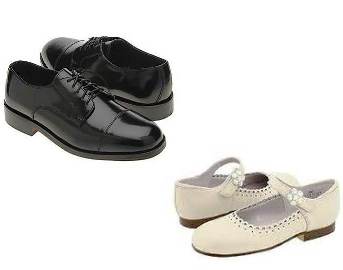
Editor’s Note: This John Q. Sherman Award finalist reminds us that sometimes the simplest ideas can make a huge impact on patient outcomes. It’s all about understanding patients, and developing solutions that engage patients on their terms.
 Preston Memorial Hospital is a Critical Access Hospital is located in Preston County, West Virginia. The hospital is in a rural area of North Central West Virginia. Preston Memorial has 25 inpatient beds and an Emergency Department with an average of 10,000 annual visits. Our patient population is low-income, aging, with a high incidence of cardiac disease and diabetes. Our reimbursement is primarily Medicare and Medicaid.
Preston Memorial Hospital is a Critical Access Hospital is located in Preston County, West Virginia. The hospital is in a rural area of North Central West Virginia. Preston Memorial has 25 inpatient beds and an Emergency Department with an average of 10,000 annual visits. Our patient population is low-income, aging, with a high incidence of cardiac disease and diabetes. Our reimbursement is primarily Medicare and Medicaid.
Battling CHF Readmissions
In 2012, the hospital’s heart failure readmission rate exceeded 22.6%, compared to the American Hospital Association’s Hospital Engagement Network (HEN) national rate of 18%. Despite the fact that Critical Access Hospitals are not penalized for readmission, heart failure readmissions became an area of focus for the hospital’s HEN team. Keeping patients with a chronic disease in their home is the right thing to do for them and their families.
Initially, our team implemented discharge teaching with “teach-back”, made follow-up appointments for patients before discharge, completed electronic medication reconciliation, and provided written home care instructions including daily weight monitoring on a scale. Despite these interventions, patients were still presenting to the Emergency Department with large, unrecognized weight gain and distress. Our interventions impacted our general readmission rates, but not the heart failure readmission rate.
A Matter of Health Literacy
In interviewing our readmitted patients, we determined that health care literacy was an issue for heart failure patients. Patients were not able to determine for themselves when they may be gaining so much fluid that they required diuresis. Some patients lacked scales for daily weight monitoring. Others lacked ability to see or read the scales because of poor eye sight or inability to see over their enlarged abdomen. A number of patients were unable to recognize a weight change from monitoring serial weights because of cognitive decline or poor math skills. This resulted in potentially preventable readmissions. We had to solve a health literacy issue!
Getting In Step with Patients
 Our team brain stormed to identify triggers that would indicate weight gain prior to distress, when home diuresis would still be a viable option. We decided to assess pedal edema using structured, formal shoes (“Sunday Shoes”), something that virtually every patient already owned. We developed a discharge instruction sheet that told patients how to assess their pedal edema daily, beginning with the day they left the hospital when they were at a “dry” weight. If their shoes did not fit that morning like they did on the day they were discharged, they were to notify their family provider for instructions or an urgent visit. The Sunday Shoes Program was born!
Our team brain stormed to identify triggers that would indicate weight gain prior to distress, when home diuresis would still be a viable option. We decided to assess pedal edema using structured, formal shoes (“Sunday Shoes”), something that virtually every patient already owned. We developed a discharge instruction sheet that told patients how to assess their pedal edema daily, beginning with the day they left the hospital when they were at a “dry” weight. If their shoes did not fit that morning like they did on the day they were discharged, they were to notify their family provider for instructions or an urgent visit. The Sunday Shoes Program was born!
Engaging Provider Support
We did not want providers to receive puzzling calls of “My shoes don’t fit,” so we engaged our area providers and obtained their support for the program. They agreed to adjust home doses of Lasix or, depending on symptoms, to see the patient that same day in the office.
Following implementation of the Sunday Shoes Program, our 30-day heart failure readmission rate dropped to 0% for 2013 and 2014!
Things We Learned
- Know your patients and their barriers. There is no universal solution.
- Consider your population’s health literacy and physical abilities. Use simple solutions that are easily understood by patients with low health literacy and accomplished despite their physical disabilities.
- If you choose to use the Sunday Shoes Program, educate the providers and the providers’ front office staff answering the phones. The first few calls made by patients saying that their Sunday shoes didn’t fit were answered with “Why are you calling us? Go to Walmart and buy some new ones.”
- Emphasize that Sunday shoes need to be structured, formal shoes such as wing tips or patent leather pumps that will feel tight when pedal edema is present. The patient cannot use tennis shoes or slippers.





1 Comment
Hello Linda,
Interesting approach to the issue of HF management and self-management education. Would you be willing to share your education tool with the readers of this post?